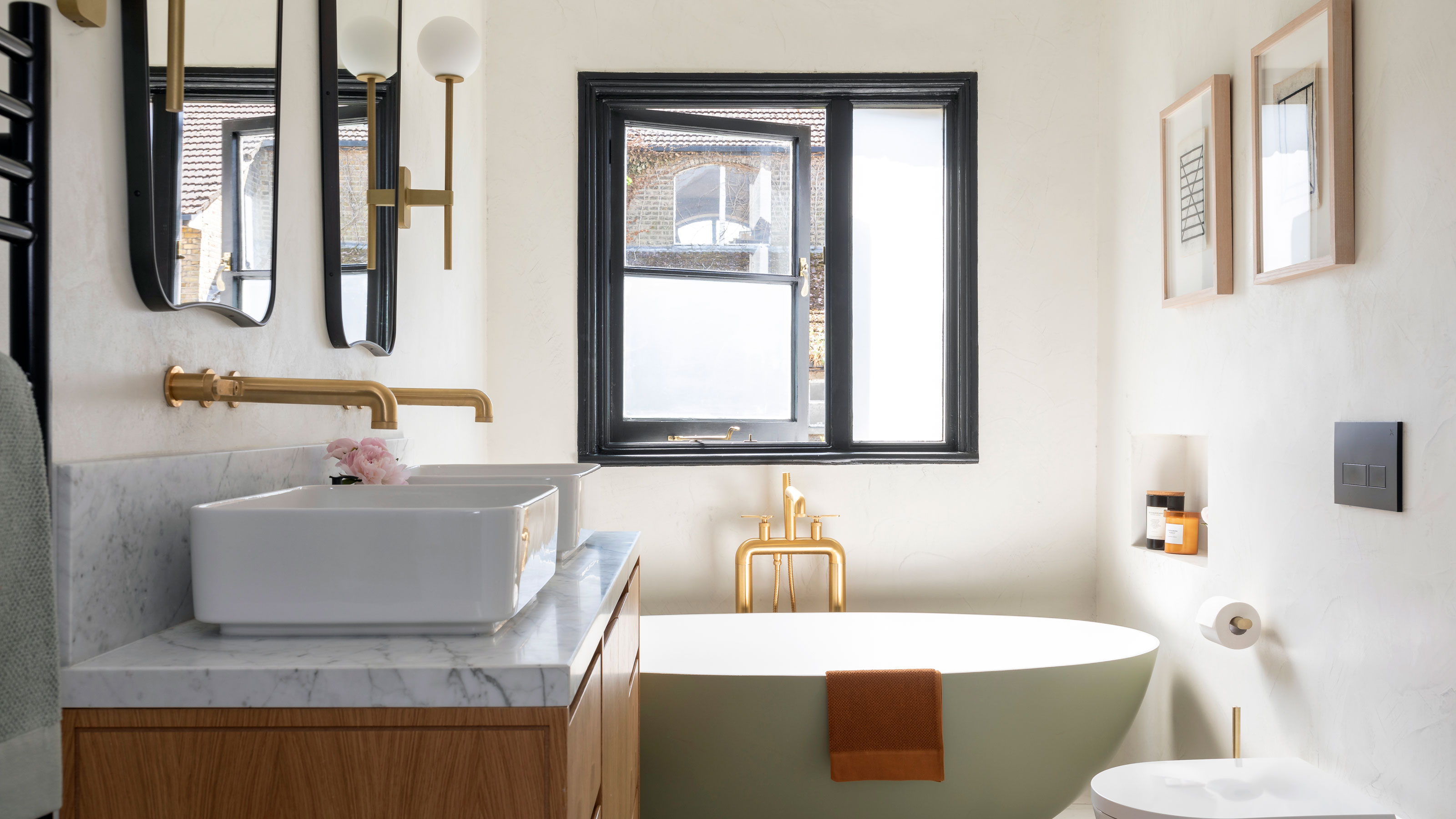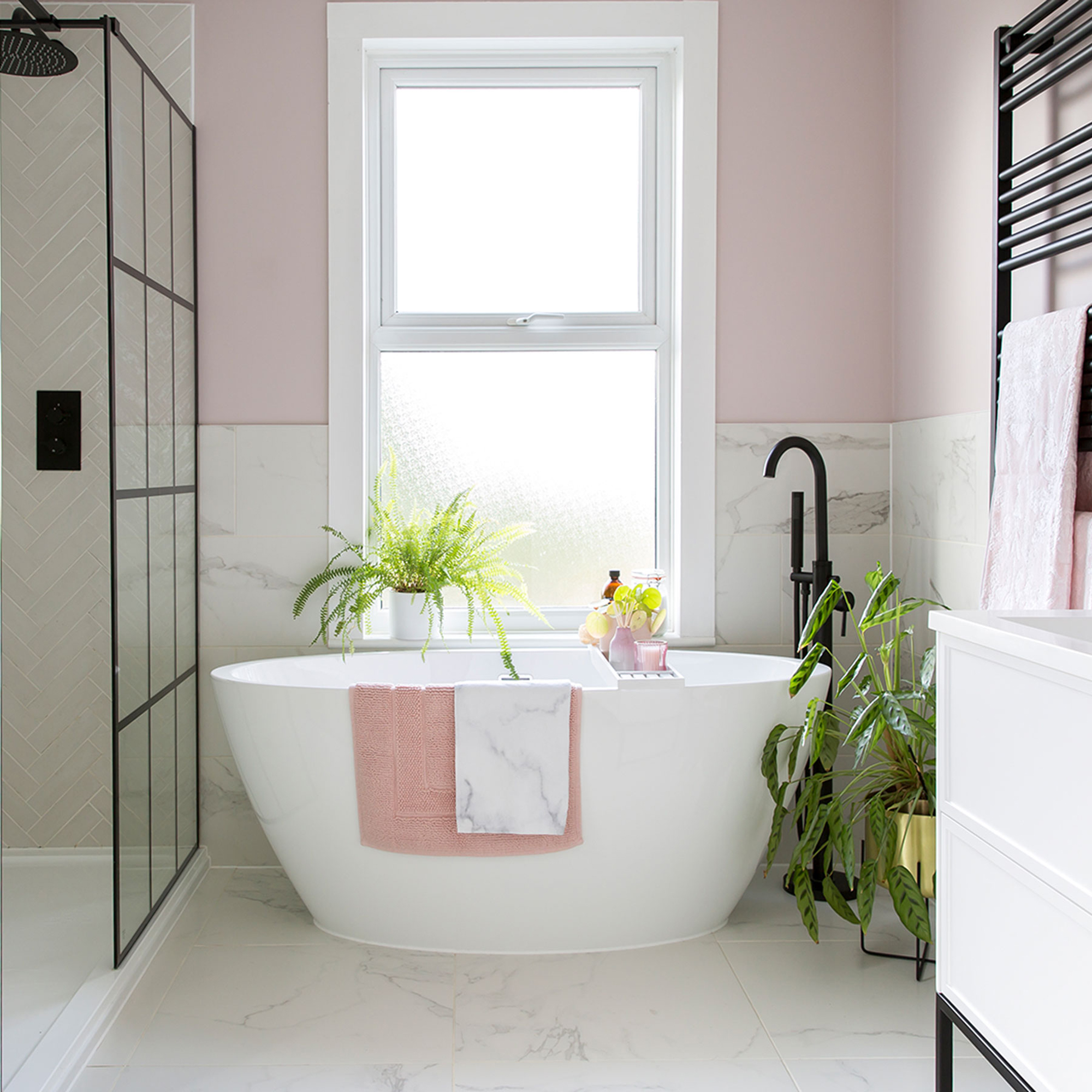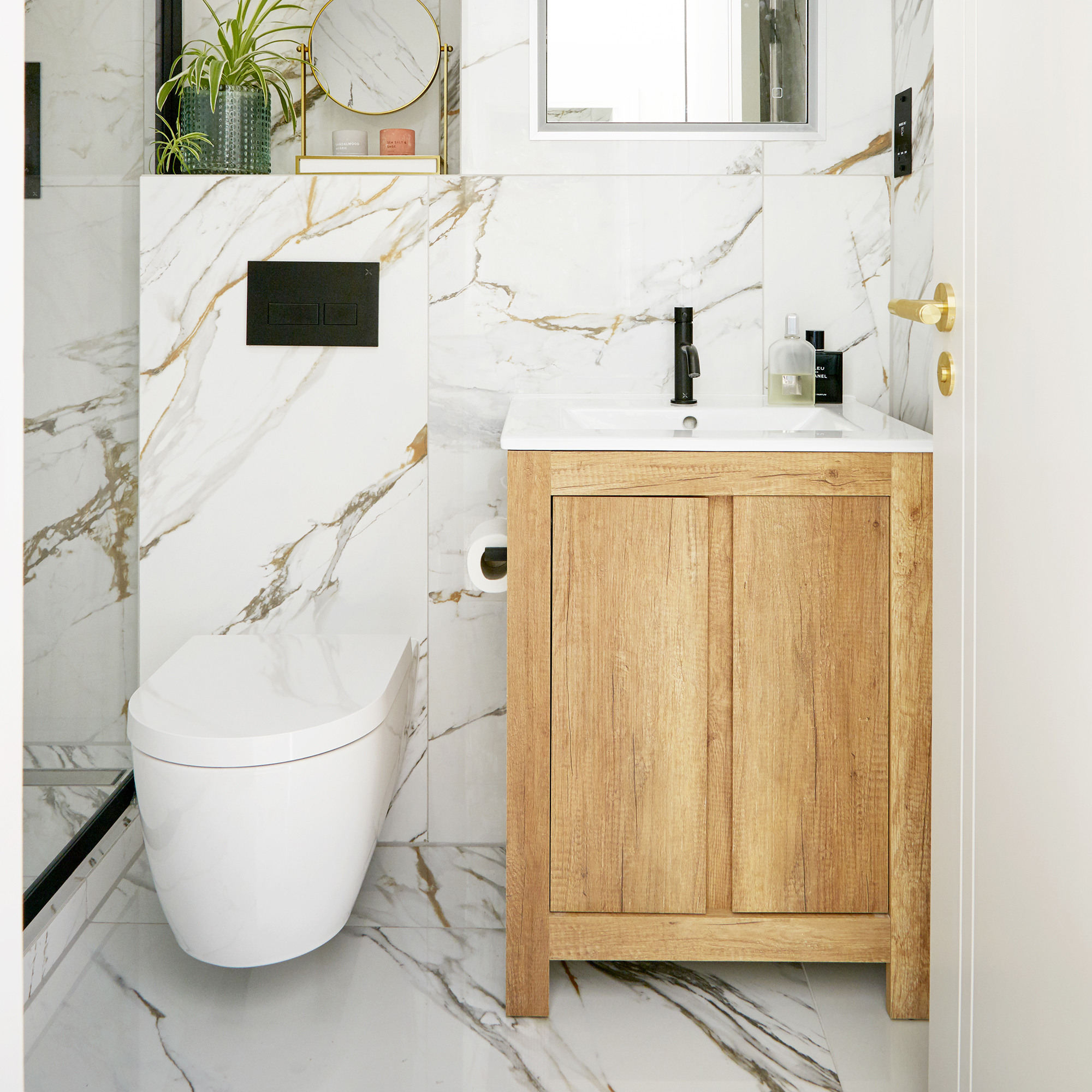The 5 bathrooms smells you should never ignore – and what to do about them
These nasty scents suggest that something needs addressing in your bathroom…


Sign up to our newsletter for style inspiration, real homes, project and garden advice and shopping know-how
You are now subscribed
Your newsletter sign-up was successful
An odd smell coming from your bathroom is sometimes to be expected - it’s a room where many of our *ahem* less pleasant daily endeavours take place, after all.
But aside from the obvious, there are a few bathroom smells that aren’t normal, and that indicate an issue may need to be addressed in your bathroom. We should all be on the lookout for unexpected smells – smells that are out of place for a bathroom – as they may suggest various issues with your plumbing or even serious damp issues that you need to deal with.
So while we all strive to make our bathrooms smell good all the time, what are the nasty bathroom smells you need to be aware of, and what should you do if you ever notice them?
5 bathroom smells to be aware of
1. A rotten egg smell
It sounds awful but if you ever notice the smells of rotting eggs in your bathroom, be aware that something needs immediate attention. 'If your bathroom drains smell like rotten eggs, this is a result of bacteria that is growing in your pipes,’ Peter Clayton, from Trade Plumbing says.
'When bacteria forms in pipes hydrogen sulphide gas is released resulting in the distinguished rotten egg smell.'
To identify the nasty scent is coming from, James Roberts, Director of Sanctuary Bathrooms explains, 'begin by ventilating the area to disperse the smell, then investigate the source by checking drains, sinks, and toilets for leaks or blockages.'
How should you then resolve the issue? Peter suggests, 'to get rid of the odour, you need to kill the bacteria growing in your pipes – you can do this by pouring half a cup of distilled white vinegar down your drain. Leave the vinegar for at least 30 minutes and follow by rinsing it down with hot water.'
Sign up to our newsletter for style inspiration, real homes, project and garden advice and shopping know-how
However, James also says it may pay to call in the professionals. 'If you suspect a persistent sewage or plumbing problem, contact a professional plumber to inspect and repair any issues promptly.'

2. A musty smell
A musty smell in a bathroom isn't too out of the ordinary, thanks to the excess moisture it often experiences, right?
Actually, James explains that a musty scent is actually not normal, and is likely to be a problem. 'If you sense a musty smell in the bathroom, this typically suggests the presence of mould or mildew, which thrives in damp, humid environments.'
Bathroom expert Andy Ellis, from Posh.co.uk, agrees, saying, 'a lingering musty smell could also mean there is a hidden leak somewhere, which could also be increasing water bill prices.'
Fixing this smell requires an investigation into its source. 'To address this issue, identify and fix any moisture sources such as leaks in pipes or fixtures. You should also thoroughly clean and disinfect bathroom surfaces, paying close attention to areas prone to moisture buildup, and remove any existing mould promptly,' James says.
To avoid a musty smell recurring in the future, ventilation is also vital. 'Install a fan to extract the moist air in your bathroom,' Peter suggests. 'Turn on your fan whenever you have a hot shower or bath, and if you find your fan isn’t effective, simply opening a window after showering is extremely effective in allowing moisture to escape from your bathroom.'
3. Rotting vegetables

Mould, when it has progressed significantly, can also produce a disgusting smell of rotting vegetables, Andy explains.
'The first sign of mold is often the smell of it. Many describe the smell of black mould as earthy, and it is often compared to the smell of rotting vegetables.'
So if you smell rotting vegetables, it’s important to find where the mould is immediately, and deal with getting rid of it very quickly. 'This must be cleaned as soon as possible as breathing in this air over long periods of time can result in dizziness, fatigue, headaches, and nausea,' Andy says.
In order to stop the mould coming back, you should also again be vigilant in ventilating the area on a daily basis, and clean the area often to address any small patches of mould as they come up.
4. A cabbage smell
Cabbage isn’t a smell you’ll only get if you’ve cooked with it in your kitchen – and while a rotting vegetable scent can indicate mould, the smell of cabbage in your bathroom could indicate a problem all of its own.
Peter says, 'if you notice a cabbage smell in your bathroom, this may indicate a problem with your sewage system. When your sewage system isn’t draining effectively, it releases a gas that can smell similar to cabbage.'
Why does this happen? 'Often poor sewer drainage is caused by broken or damaged pipes that don’t allow the sewage gas to escape,' Peter says.
It's important to inspect the integrity of your plumbing then, if your bathroom smells of cabbage. 'Have a look at your plumbing system to see if you can identify any broken or damaged pipes,' Peter suggests. 'If you notice a damaged or broken pipe then get in touch with a professional plumber as soon as possible to prevent further damage.'
5. A smell of sewage

If your bathroom is presenting with a new and distinct smell of sewage, you might need to deal with the drains in either your shower or bath, Andy says.
'An accumulation of hair, dead skin, shower gel and other debris could be clogging the shower and causing a sewage smell,' he explains. 'The build-up will cause mould and bacteria to grow and make the smell worse.'
Luckily, this is an easy fix, but knowing how to clean a shower drain properly is important. Usually, all you need to do is remove the dirt, debris and sludge from the top of your drain, before pouring boiling water down there, and the smell should subside.
It can also be helpful to pour bleach down the drain to really eradicate the smell, or natural alternatives such as vinegar or baking soda.

Amy Hunt is an experienced digital journalist and editor, now working in a freelance capacity specialising in homes and interiors, wellness, travel and careers. She was previously Lifestyle Editor at woman&home, overseeing the homes, books and features sections of the website. Having worked in the industry for over eight years, she has contributed to a range of publications including Ideal Home, Livingetc, T3,Goodto, Woman, Woman’s Own, and Red magazine.